Laivonna - Ivonna
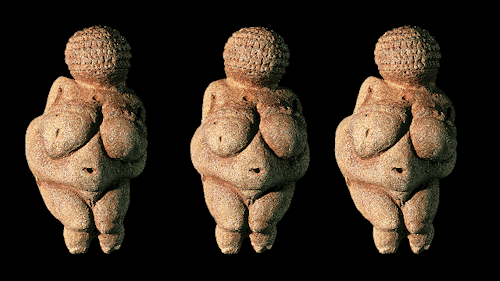
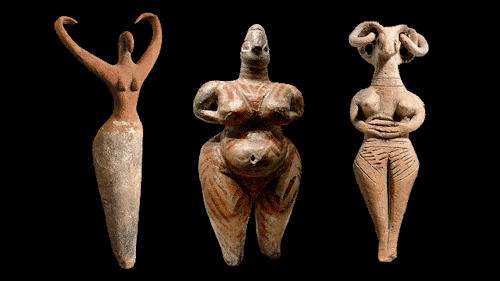
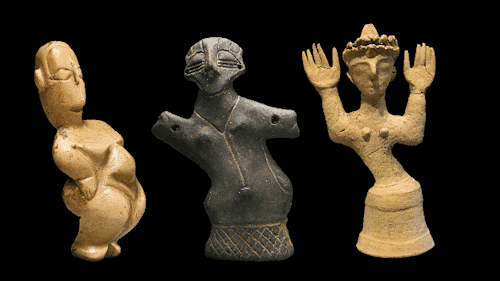
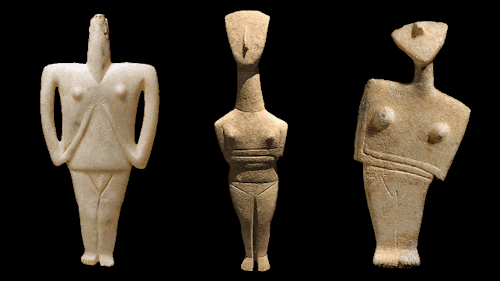
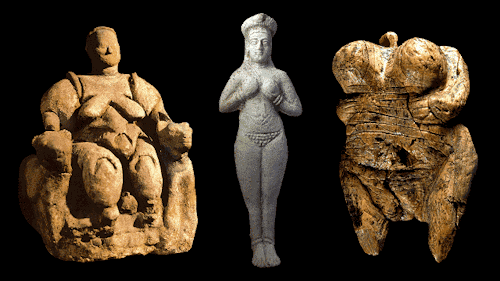
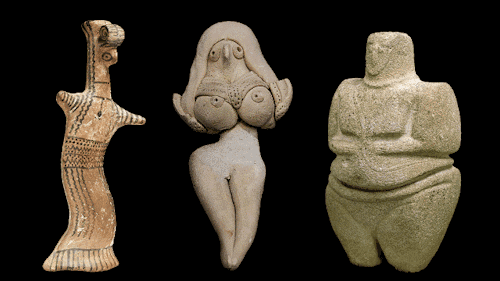
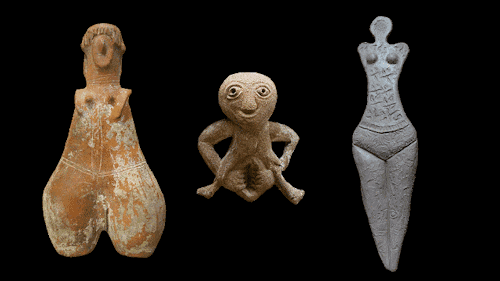
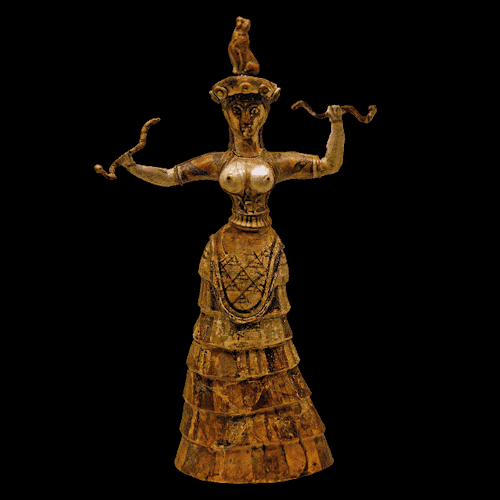
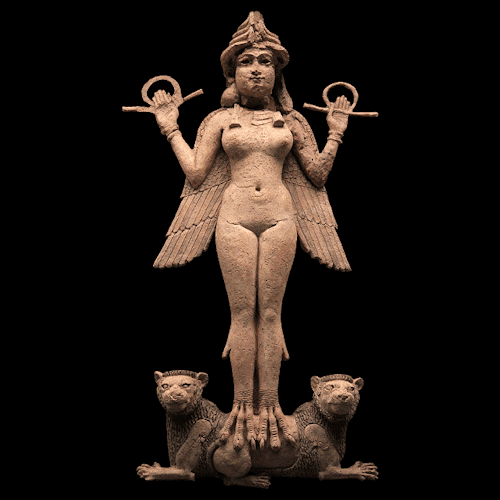
More Posts from Laivonna and Others

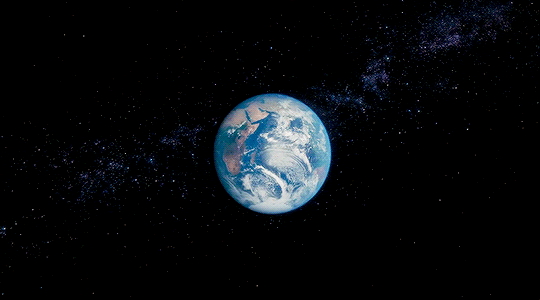
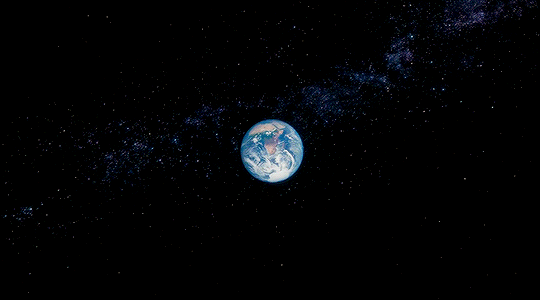






“That’s here. That’s home. That’s us. On it everyone you love, everyone you know, everyone you ever heard of, every human being who ever was, lived out their lives. The aggregate of our joy and suffering, thousands of confident religions, ideologies, and economic doctrines, every hunter and forager, every hero and coward, every creator and destroyer of civilization, every king and peasant, every young couple in love, every mother and father, hopeful child, inventor and explorer, every teacher of morals, every corrupt politician, every “superstar,” every “supreme leader,” every saint and sinner in the history of our species lived there—on a mote of dust suspended in a sunbeam.
The Earth is a very small stage in a vast cosmic arena. Think of the rivers of blood spilled by all those generals and emperors so that, in glory and triumph, they could become the momentary masters of a fraction of a dot. Think of the endless cruelties visited by the inhabitants of one corner of this pixel on the scarcely distinguishable inhabitants of some other corner, how frequent their misunderstandings, how eager they are to kill one another, how fervent their hatreds.
Our posturings, our imagined self-importance, the delusion that we have some privileged position in the Universe, are challenged by this point of pale light. Our planet is a lonely speck in the great enveloping cosmic dark. In our obscurity, in all this vastness, there is no hint that help will come from elsewhere to save us from ourselves.
The Earth is the only world known so far to harbor life. There is nowhere else, at least in the near future, to which our species could migrate. Visit, yes. Settle, not yet. Like it or not, for the moment the Earth is where we make our stand.
It has been said that astronomy is a humbling and character-building experience. There is perhaps no better demonstration of the folly of human conceits than this distant image of our tiny world. To me, it underscores our responsibility to deal more kindly with one another, and to preserve and cherish the pale blue dot, the only home we’ve ever known.”
— CARL SAGAN about The Pale Blue Dot, taken 30 years ago on February 14, 1990, by the Voyager 1 space probe from 6 billion kilometers (3.7 billion miles) away from Earth.
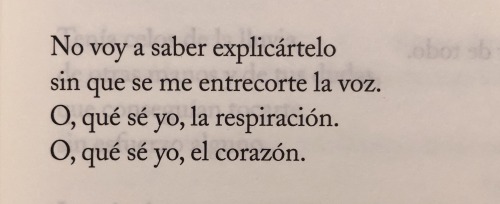
—Anatomía de una bañera, Júlia Peró

Source: Gloria Ross on Pinterest






Illustrations by Moomin creator, Tove Jansson for a 1966 Swedish edition of ALICE IN WONDERLAND.


Bronze sculpture, EXPANSION. By Paige Bradley.
“There is a crack in everything, that’s how the light gets in…”
“Hay personas que nos gustan y mucho. Pero no por el hecho de que nos gusten vamos a pensar en ellos como próximos amantes o incluso hablar de noviazgo. ¿Por qué añadirle una etiqueta al futuro que desconocemos? Un socio, un amigo, un compañero… un algo. Puede que quizás en una semana como en dos meses… se convierta en otra cosa, tampoco voy a negarlo; pero puede también que se diluya, llevándose tras de sí, toda esa atracción primera, convertida en un mero número de teléfono y una chela a medias. Simplemente nos gustan. Y sí, existen personas que me gustan, y mucho. No pienso en acostarme con ellas o prometerles un amor eterno. No, de momento. Tampoco confirmo ni desmiento que en un azar termine compartiendo unas sábanas y un grito mudo de placer contra una pared. No me aventuro a descifrar los porvenires. Me conformo con conocerles, evadirme, jugar y cortejarles. Vivirlos. Aprender de ellos. Conocer nuevas fórmulas, nuevos guiños y alguna que otra anécdota. Y me gustan. Me gustan mucho. Y me gustas. Me gustas mucho. Así que apresúrate, sígueme el juego y actúa como si me conocieras. No rompas esa magia. Olvídate de las esperas.”


James Turrell a retrospective
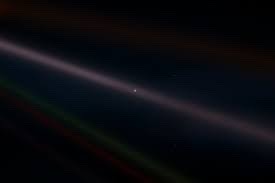
“Look again at that dot. That's here. That's home. That's us. On it everyone you love, everyone you know, everyone you ever heard of, every human being who ever was, lived out their lives. The aggregate of our joy and suffering, thousands of confident religions, ideologies, and economic doctrines, every hunter and forager, every hero and coward, every creator and destroyer of civilization, every king and peasant, every young couple in love, every mother and father, hopeful child, inventor and explorer, every teacher of morals, every corrupt politician, every "superstar," every "supreme leader," every saint and sinner in the history of our species lived there-on a mote of dust suspended in a sunbeam.
The Earth is a very small stage in a vast cosmic arena. Think of the endless cruelties visited by the inhabitants of one corner of this pixel on the scarcely distinguishable inhabitants of some other corner, how frequent their misunderstandings, how eager they are to kill one another, how fervent their hatreds. Think of the rivers of blood spilled by all those generals and emperors so that, in glory and triumph, they could become the momentary masters of a fraction of a dot.
Our posturings, our imagined self-importance, the delusion that we have some privileged position in the Universe, are challenged by this point of pale light. Our planet is a lonely speck in the great enveloping cosmic dark. In our obscurity, in all this vastness, there is no hint that help will come from elsewhere to save us from ourselves.
The Earth is the only world known so far to harbor life. There is nowhere else, at least in the near future, to which our species could migrate. Visit, yes. Settle, not yet. Like it or not, for the moment the Earth is where we make our stand.
It has been said that astronomy is a humbling and character-building experience. There is perhaps no better demonstration of the folly of human conceits than this distant image of our tiny world. To me, it underscores our responsibility to deal more kindly with one another, and to preserve and cherish the pale blue dot, the only home we've ever known.”
Carl Sagan. The photo, taken by the Voyager I in 1990, shows the Earth from nearly 4 billion miles away.
“Y si leo, si compro libros y los devoro, no es por un placer intelectual -yo no tengo placeres, sólo tengo hambre y sed- ni por un deseo conocimiento, sino por una astucia inconsciente que recién descubro: coleccionar palabras, prenderlas en mí como si ellas fueran harapos y yo un clavo, dejarlas en mi inconsciente, como quien no quiere la cosa, y despertar, en la mañana espantosa, para encontrar a mi lado un poema ya hecho.”
— ~ Alejandra Pizarnik
Tacto.

-
 sierralanderson liked this · 1 month ago
sierralanderson liked this · 1 month ago -
 bluesxoxo liked this · 1 month ago
bluesxoxo liked this · 1 month ago -
 thoughtful-archivist reblogged this · 1 month ago
thoughtful-archivist reblogged this · 1 month ago -
 ag49----02 liked this · 1 month ago
ag49----02 liked this · 1 month ago -
 str-dusts liked this · 2 months ago
str-dusts liked this · 2 months ago -
 ibmwtx liked this · 2 months ago
ibmwtx liked this · 2 months ago -
 gendercriticalwoman liked this · 2 months ago
gendercriticalwoman liked this · 2 months ago -
 farpegi liked this · 2 months ago
farpegi liked this · 2 months ago -
 hierba--mala liked this · 2 months ago
hierba--mala liked this · 2 months ago -
 elonex reblogged this · 2 months ago
elonex reblogged this · 2 months ago -
 elonex liked this · 2 months ago
elonex liked this · 2 months ago -
 clevernamepending reblogged this · 2 months ago
clevernamepending reblogged this · 2 months ago -
 puremenheavenblr liked this · 2 months ago
puremenheavenblr liked this · 2 months ago -
 wrongeragirl reblogged this · 2 months ago
wrongeragirl reblogged this · 2 months ago -
 wrongeragirl liked this · 2 months ago
wrongeragirl liked this · 2 months ago -
 no-one-else-but-me liked this · 2 months ago
no-one-else-but-me liked this · 2 months ago -
 immoderate-use-of-the-citrus liked this · 2 months ago
immoderate-use-of-the-citrus liked this · 2 months ago -
 dotsdillydally liked this · 2 months ago
dotsdillydally liked this · 2 months ago -
 foreknowledge reblogged this · 2 months ago
foreknowledge reblogged this · 2 months ago -
 foreknowledge liked this · 2 months ago
foreknowledge liked this · 2 months ago -
 thisuserlovesyou reblogged this · 2 months ago
thisuserlovesyou reblogged this · 2 months ago -
 thisuserlovesyou liked this · 2 months ago
thisuserlovesyou liked this · 2 months ago -
 sakkigami liked this · 2 months ago
sakkigami liked this · 2 months ago -
 thesassysexualsatanist reblogged this · 2 months ago
thesassysexualsatanist reblogged this · 2 months ago -
 thesassysexualsatanist liked this · 2 months ago
thesassysexualsatanist liked this · 2 months ago -
 shoesareforfeet liked this · 2 months ago
shoesareforfeet liked this · 2 months ago -
 shoesareforfeet reblogged this · 2 months ago
shoesareforfeet reblogged this · 2 months ago -
 strawzberrize reblogged this · 2 months ago
strawzberrize reblogged this · 2 months ago -
 just-another-oikawa-kinnie liked this · 2 months ago
just-another-oikawa-kinnie liked this · 2 months ago -
 coathangerhegemony reblogged this · 2 months ago
coathangerhegemony reblogged this · 2 months ago -
 autarkiia reblogged this · 2 months ago
autarkiia reblogged this · 2 months ago -
 myceliyumm reblogged this · 2 months ago
myceliyumm reblogged this · 2 months ago -
 hanniballover67 reblogged this · 2 months ago
hanniballover67 reblogged this · 2 months ago -
 hanniballover67 liked this · 2 months ago
hanniballover67 liked this · 2 months ago -
 salmadurka reblogged this · 2 months ago
salmadurka reblogged this · 2 months ago -
 salmadurka liked this · 2 months ago
salmadurka liked this · 2 months ago -
 coco-saurio reblogged this · 2 months ago
coco-saurio reblogged this · 2 months ago -
 strawgremlin reblogged this · 2 months ago
strawgremlin reblogged this · 2 months ago -
 strawgremlin liked this · 2 months ago
strawgremlin liked this · 2 months ago -
 aiwendilism liked this · 2 months ago
aiwendilism liked this · 2 months ago -
 kandyland-02 liked this · 2 months ago
kandyland-02 liked this · 2 months ago -
 finniesclover liked this · 2 months ago
finniesclover liked this · 2 months ago -
 machiavelli-him-into-submission reblogged this · 2 months ago
machiavelli-him-into-submission reblogged this · 2 months ago -
 picklepuffin liked this · 2 months ago
picklepuffin liked this · 2 months ago -
 onceuponabibliophisla reblogged this · 2 months ago
onceuponabibliophisla reblogged this · 2 months ago -
 deaddovedandelion liked this · 2 months ago
deaddovedandelion liked this · 2 months ago -
 redeemedatshawshank liked this · 2 months ago
redeemedatshawshank liked this · 2 months ago -
 jaderiverdelta liked this · 2 months ago
jaderiverdelta liked this · 2 months ago -
 ghost-of-lectricity liked this · 2 months ago
ghost-of-lectricity liked this · 2 months ago -
 peep-pop liked this · 2 months ago
peep-pop liked this · 2 months ago
